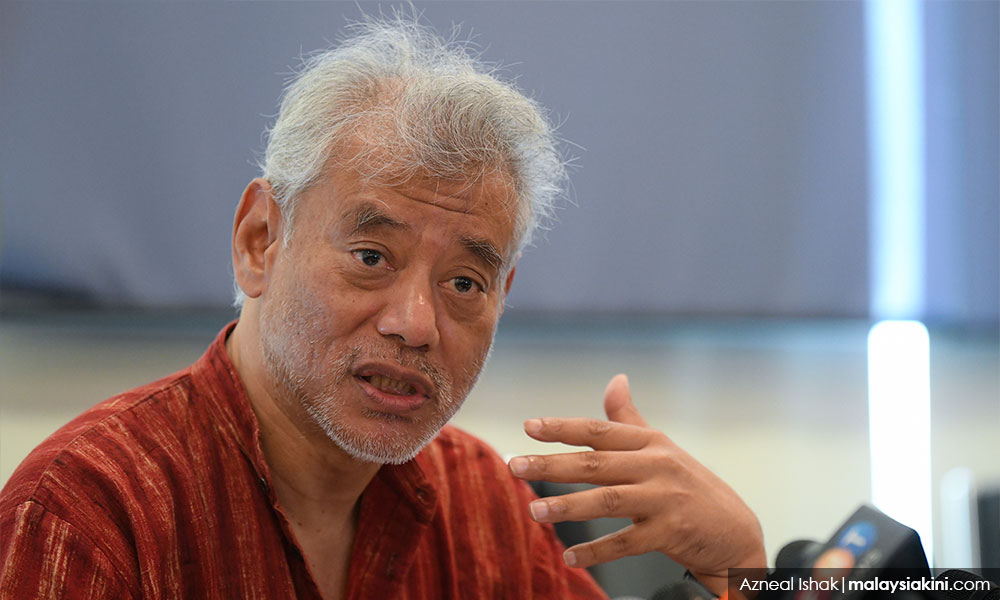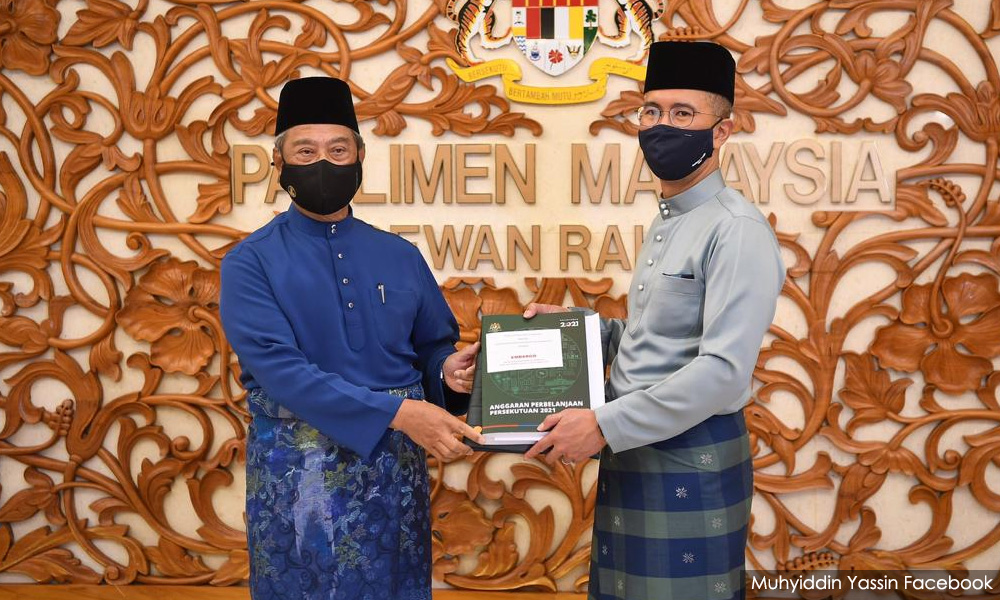As Malaysia lurches towards the finishing line of 2020, economic experts are lamenting that Prime Minister Muhyiddin Yassin's administration has not taken the opportunity to redress inherent structural imbalances.
This has left the economy overly reliant on a few large companies while small and medium enterprises (SMEs) struggle to keep themselves in the game.
“The Malaysian economy has huge structural problems," political economy professor Terrence Gomez told Malaysiakini.
“Even before the lockdown in March, we were not doing very well and this economy was heavily dependent on FDI (foreign direct investment).
“Finance Minister Tengku Zafrul Abdul Aziz is clearly going to resort to depending on the existing government ecosystem of government-linked companies (GLCs) and government-linked investment companies (GLICS).
“He was right in that there was an ecosystem under the direct control of the government that could be deployed to help people in need," Gomez said.
By doing so, Zafrul showed that there is a mechanism that could function at the dictates of the government to serve the needs of the nation, he added.
However, Gomez said, Zafrul was immediately handicapped by the political realities of Muhyiddin’s narrow majority in Parliament.
“Unfortunately the prime minister then decided to consolidate his political position by offering GLC positions to a large number of backbencher politicians. This was done under the eyes of everybody and this greatly undermined the possibility of employing GLCs effectively.
“It was not the time to put political considerations first, but that is what happened," he said.
In a parliamentary response in August, Zafrul defended the appointments of 15 politicians, including MPs, state assemblypersons, senators and party members, to Minister of Finance Incorporated (MOF Inc) companies.
He said “only two” politicians were appointed to statutory bodies parked under his ministry.
“Appointing politicians as non-executive directors and independent non-executive directors limits the power between the board of directors and management.
"This is in line with MCCG (Malaysian Code of Corporate Governance) 2017 and will act as a check-and-balance mechanism, to ensure they (the firms) are in line with government policies and aspirations,” Zafrul claimed.
This doesn’t impress Gomez, who highlighted that key institutions under the prime minister’s control, such as Permodalan Nasional Berhad and Khazanah Nasional, have ownership and control of eight of Malaysia’s top 10 public-listed companies.
These firms include Maybank and CIMB, Malaysia’s leading banks, utilities-based Tenaga and Axiata, conglomerate Sime Darby, oil and gas-based Petronas Chemicals and Petronas Gas and healthcare enterprise IHH, Gomez said.
Economist Jomo K Sundaram (below) articulated similar fears in his opinion piece - "A budget for extraordinary times no excuse for abuse".
“There are widespread concerns that bolder expansionary fiscal policies are likely to be abused by typically short-term governments of the day, tempted by macroeconomic (ethno-)populism, and unconcerned about the medium- and long-term consequences of increased spending, borrowing and debt.
"Only much better governance, transparency and accountability can minimise harm due to likely ‘leakages’ and abuses associated with increased government borrowing and spending.
"Such fiscal policies typically involve governments borrowing, especially by selling bonds and other securities, including to central banks,” Jomo said.
The Khazanah Research Institute research advisor also cautioned that while the public often presumes that governments tax first in order to spend, the reverse is actually true.
“They usually spend first and then tax. Poorly accountable governments often take advantage of real, exaggerated or imagined crises to pursue more populist macroeconomic policies to secure regime survival and benefit the politically well-connected,” Jomo added.
Gomez said that this trend was visible from the first stimulus package launched by Muhyiddin’s government in March.
“The stimulus package provoked a serious backlash from the SME sector which constitutes 98.5 of the corporate sector.
"We are highly dependent on them for employment and the SMEs asked why the government was giving money to public sector people who have job security instead of those in the gig economy.
“They treated the stimulus package as a budget and everyone got something, except the SMEs, which is why 10 days later they came out with a supplementary package,” he added.

Gomez said that the politicisation of the government’s wealth resource distribution was further cemented by the budget which had "a racialised tone".
“In the division of the budget, the finance minister clearly demarcated billions to the bumiputera groups via GLCs. There was a very significant volume for them while the volume of support for SMEs was not deep.
“Even when you break down the SME sector, Zafrul himself said that 80 percent of them are non-bumiputera companies and yet a bulk of the funding is going to the 20 percent.
“You are clearly not giving sufficiently to the 80 percent,” he said, adding that they deployed funding in a targeted way only to reach companies or SMEs of a certain ethnic group.
Gomez said despite the government having the tools to address the nexus of the Covid-19 pandemic and economy, it failed to do so and that was the tragedy of the budget.
"There was no sign of new ways to deal with this new phenomenon. The budget did not inspire companies and the confidence of the private sector.
"Instead, they were bypassed and that hardly inspires confidence – this brings up the question of how to project high growth rates when the budget doesn't inspire the private sector,” he added.
While Budget 2021 was planned on the basis of a swift rebounding of the economy with gross domestic product (GDP) growth of up to 7.5 percent, detractors are claiming this recession could prove to be as long-lasting and of greater impact than the mid-1980s recession and the Asian Financial Crisis of 1997.
Experts pointed out that due to the very poor economic figures in the second quarter (Q2) of this year (-17.1 percent) the recession is likely to end on a technicality because Q2 of 2021 will be compared to a much lower base.
However, that does not address much-needed restructuring.
In recent days, rating agency Fitch Ratings downgraded Malaysia's long-term foreign-currency issuer default rating (IDR) from A- to BBB+, potentially making it more expensive for the country to borrow.
Fitch said although Malaysia has moved quickly to provide relief for the economic impact of Covid-19, the impact remains substantial and adds to Malaysia's already high fiscal burden.
It notably cited the ongoing political uncertainty following the Sheraton Move as among the factors for the downgrade.

Gomez (above) also called for a structural overhaul of the SME sector itself, which would need some input from the government.
“If you look at the 1.2 million companies in the country, 980,000 companies are SMEs. Some 90 percent of them are micro-firms with five employees and less. This creates a major structural problem during a downturn,” he said.
He added that a fresh approach is needed and cited the agricultural sector as one that would be a new pillar of the Malaysian economy.
“At a time when nations are concerned about food security, this is a time where the government can really put a lot of resources into this sector, giving jobs to Malaysians who have lost them, in the service sector for example.
“We are not really seeing this kind of policy innovation from the government at a time when it is sorely needed,” Gomez said. - Mkini






No comments:
Post a Comment
Note: Only a member of this blog may post a comment.